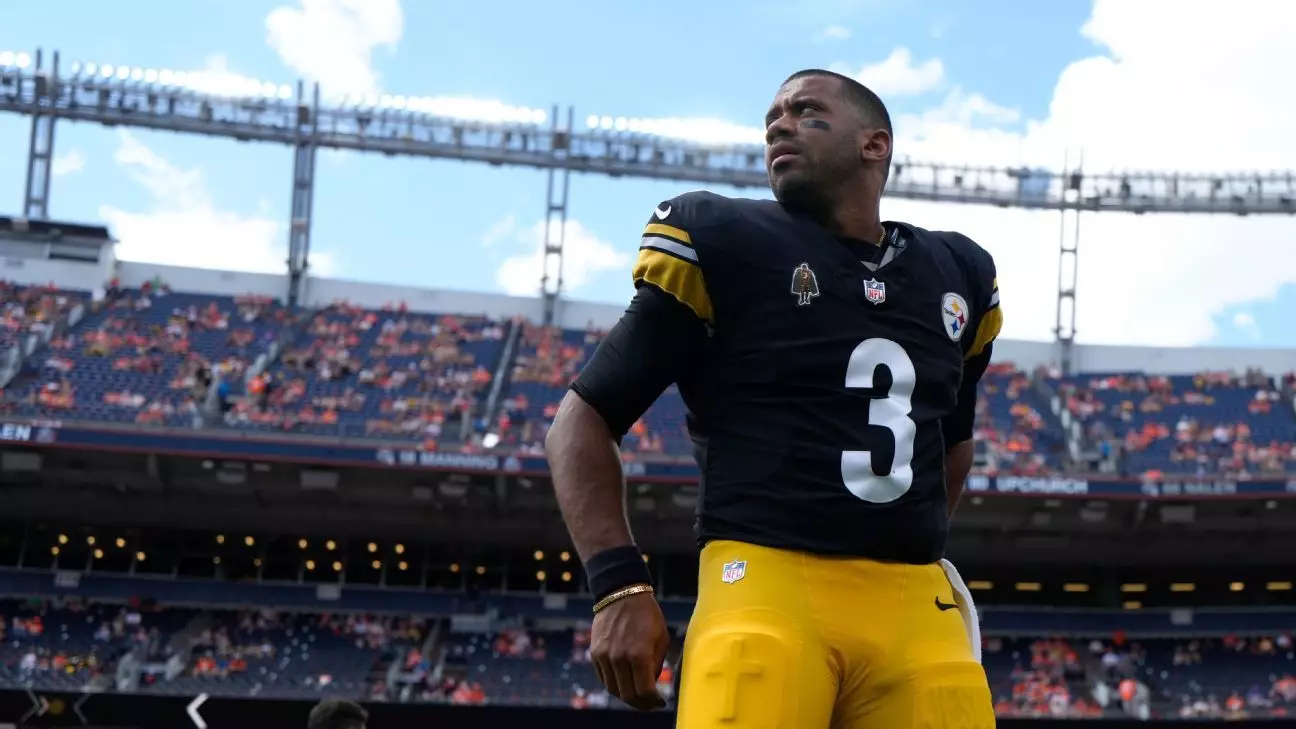In a game that reeked of underlying narratives and emotional returns, the Pittsburgh Steelers outlasted the Denver Broncos with a narrow 13-6 victory. What stood out most was the significance of the game seemingly transcending the standard scoreboard; players were left to reflect on personal relationships and past grievances. Particularly notable was quarterback Russell Wilson’s unique involvement as he observed from the sidelines, underlining the curious nuances of professional football, loyalty, and redemption.
Despite not stepping onto the field, Russell Wilson still earned a “petty game ball” from Steelers’ head coach Mike Tomlin. This token isn’t merely a playful gag; it’s emblematic of an unspoken understanding within the league. By acknowledging Wilson with this particular award, Tomlin reinforced the emotional ties that often bind players and coaches across various organizations. Notably, Wilson’s past involvement with the Broncos, combined with his abrupt exit after the dissolution of a five-year, $242.6 million contract, created a backstory that added layers to the matchup. Such gestures from fellow players and coaches are indicative of both respect and the nature of sports as a deeply personal affair.
Justin Fields, the Steelers’ starting quarterback for this game, bore the brunt of both accomplishments and obstacles during his gameplay. Starting strong, Fields was sharp in the first half, completing ten of his first twelve passes. Yet, the tale of the contest soon shifted, revealing the volatility and unpredictability of football. In the second half, Fields’s output dwindled, prompting questions about the stability of the Steelers’ offensive game plan. Football, while often seen as merely a game of stats, encapsulates a much larger story – one where players like Fields navigate personal expectations, team dynamics, and external pressures.
While Fields delivered a crucial touchdown during his early momentum, question marks arose as the game progressed. Not only were penalties raining down on the Steelers, halting their rhythm, but the run game also teetered on the brink of dysfunction, adding weight to the situation. Fields characterized this particular challenge articulately: “It’s hard to win in this league, especially on the road in these hostile environments.” His acknowledgment of these challenges painted a clear picture of the hurdles athletes face week in and week out.
For Wilson, stepping back onto the turf he once called home became a layered experience, serving as a poignant reminder of relationships forged and lost. Being inactive due to a calf injury did little to dissuade him from embracing his past. Arriving over three hours before the game, Wilson took the opportunity to connect with old coaches and teammates – gestures that didn’t go unnoticed in the professional sports arena. His playful interactions reminded onlookers that bonds in football extend beyond the confines of the playing field. They remain part of a larger social framework where shared experiences can foster genuine connection, even amid fierce competition.
Moreover, Wilson’s observations as the “emergency third quarterback” were particularly illuminating. Not only was he physically present, but he also transitioned into an emotional support role for his current teammates, highlighting the duality present within team dynamics. Perhaps this kind of emotional intelligence allows players like Wilson to redefine their roles and find purpose, even when sidelined.
The Steelers’ victory over the Broncos was underscored by a tapestry of emotions and personal histories that transcended the typical statistics associated with athletic performance. Though Russell Wilson may have found himself watching from the sidelines, the sentiments tied to his journey are a powerful reminder of the human side of professional sports. It’s not just about winning or losing but about relationships, identity, and moments of connection that resonate deeply with players and fans alike. In the grand tapestry of professional football, these narratives remind us that each game tells a story—not only on the scoreboard but also within the hearts of those who play the game.


Leave a Reply